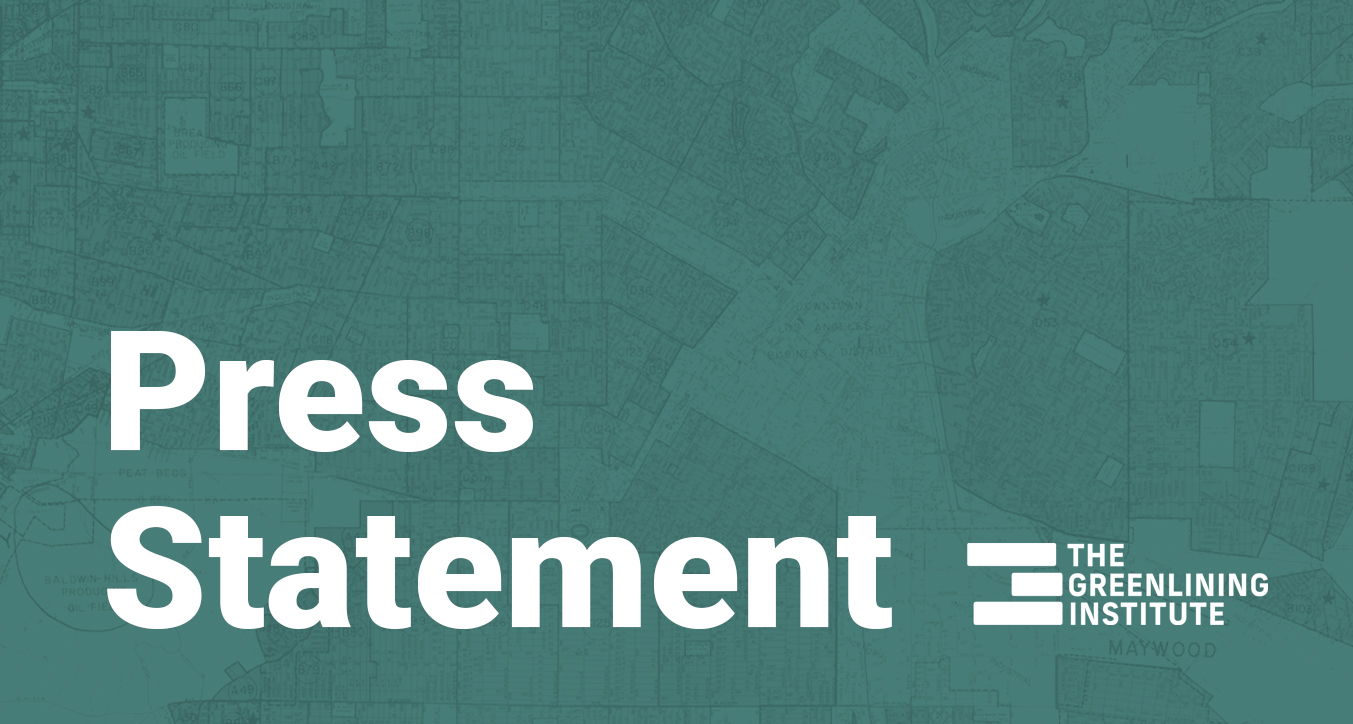Black MTS Riders Cited Disproportionately

Media Contact
Danielle Bell
SENIOR PROGRAM MANAGER FOR MEDIA RELATIONS
media@greenlining.org danielle.bell@greenlining.orgBy Lisa Halverstadt and Kate Nucci
Voice of San Diego
Black Metropolitan Transit System riders received nearly a third of the quality of life citations the agency’s officers wrote last year but made up less than 15 percent of the system’s ridership.
A Voice of San Diego analysis of more than 77,600 MTS citations revealed Black riders – who make up 12 to 14 percent of MTS ridership, according to surveys – received 32 percent of tickets written for violations such as failing to pay a trolley fare or to follow MTS officers’ orders.
Black riders were also overrepresented among riders who received at least 30 MTS citations last year. VOSD’s analysis showed 99 of the 232 riders who were ticketed more than two dozen times were Black. Those Black riders collectively received more than 8,500 citations.
Activists have for years raised concerns about MTS’s aggressive enforcement and its impact on low-income people of color who rely on the transit system as the agency has cracked down on fare and other quality of life violations. Last year, MTS wrote more than 66,000 tickets for fare evasion alone.
MTS officials say they are pursuing a comprehensive analysis of the agency’s enforcement approach they hope will also help MTS better understand and address racial disparities, and in September will roll out a fare evasion diversion program to lessen the burden of tickets for failure to pay a $2.50 fare. MTS also reports it has relaxed enforcement of both fare evasion and quality of life violations this year.
“All of this has been enacted in 2020 due in part to the recognition that MTS enforcement policies may have had a disparate impact on our riders,” MTS spokesman Rob Schupp wrote in an email to VOSD.
City Councilwoman Monica Montgomery, who chairs MTS’s Public Security Committee, said the volume of MTS enforcement affecting Black riders underscores the need for further reform and cultural shifts at the agency – and in the community.
“This is why we’re pushing for lower [fare evasion] fees and a way to get around the effect the citations can have, but ultimately, in every conversation I have about profiling, it really comes back to the culture and many San Diegans and Americans are conditioned to believe that Black people are inherently dangerous and we just get treated differently even in these situations,” said Montgomery, who is Black.
The disparate impact of enforcement on Black MTS riders isn’t unprecedented.
An analysis of Bay Area Rapid Transit enforcement last year found Black riders received more than 45 percent of fare citations despite making up just 10 percent of the agency’s ridership. The Seattle Times also revealed that 22 percent of Sound Transit riders cited for fare violations were Black though they make up just 9 percent of riders. And last year, VOSD teamed with UC San Diego Extension Center for Research on a review of traffic stops by San Diego police and San Diego County Sheriff’s deputies and found Black San Diegans were searched more than any other race.
“We’re seeing the exact same parallels with policing on the streets and policing in transit in terms of who is stopped and hounded,” said Hana Creger of Oakland-based Greenlining Institute, which focuses on racial and economic justice.
Police reform advocate Tasha Williamson, who has for years spoken out against MTS’s enforcement posture, agreed.
“In every system, we’re disproportionately impacted and here you see that yet again, we have a system where we are being disproportionately impacted,” said Williamson, who is Black.
MTS has said its fare enforcement process is designed to avoid bias. MTS code compliance inspectors board the trolley armed with handheld devices to check fares and announce that riders should pull out their passes.
“In 2019, MTS checked all people riding the trolley and during special enforcement details, all people on board trolleys and on stations’ platforms,” Schupp said.
One morning earlier this month, MTS code compliance inspector Xavier Herrera did just that as he walked onto the Green Line at the Imperial Avenue station.
“Good morning, everybody,” Herrera said. “Have your ticket passes, please.”
Herrera then approached every rider in the sparsely populated trolley as contract security officer Jose Morales looked on. All riders were able to show they had paid.
Herrera later said the process allows officers to avoid targeting specific riders.
Yet officers have the discretion to decide who receives a ticket or a warning.
Herrera said MTS officers haven’t been as quick to write citations in 2020 as riders grapple with the coronavirus pandemic.
“It’s more about education now, trying to help the public,” Herrera said.
That’s a departure from the aggressive approach MTS has taken in recent years. Last year, MTS gave out more than four times as many citations as it did in 2015 and the agency’s fare evasion enforcement has eclipsed that of other transit agencies, including those with more riders.
As that enforcement increased, some riders have noticed disparities.
Mike Woods, 55, said MTS officers seem particularly focused on Black and homeless people on and near the trolley. Woods, a passholder who is Black and has lived on the street for years, said he has often noticed MTS officers question those riders before they address others.
“They rush to them first,” Woods said. “last They’re ready to give the African American people tickets first.”
Woods said he recently looked on as an MTS officer waved off a white rider in a military uniform who was preparing to retrieve his pass during a fare check before asking to see Woods’ pass.
San Diego State associate professor Megan Welsh, who has studied racial disparities in San Diego police traffic stop data and officers’ perceptions about profiling, said MTS officers and leaders’ discretionary decisions about how to carry out enforcement – from the timing of enforcement efforts to who is approached first about potential violations – likely play a significant role in who is being cited. She said MTS’s focus on low-level quality of life and fare violations is also significant.
An MTS customer satisfaction survey conducted last year revealed 41 percent of the 1,560 respondents had a household income of less than $15,000, up from 36 percent two years earlier.
“This is a way we are punishing the poorest in our society. We’re just finding another form of surveillance to do that,” Welsh said. “It’s a poor tax.”
Welsh and David Loy, legal director at the ACLU of San Diego & Imperial Counties, argued that disparities in MTS’s enforcement numbers point to the need for an overhaul to the agency’s approach and for more tools to serve rather than crack down on riders.
Loy urged MTS to move to decriminalize violations such as fare evasion, a move Montgomery has also advocated.
“I encourage the board to move as quickly as it possibly can on that,” Loy said. “This is a perfect example of the kind of overcriminalization in the law that gives the police excessive power to police communities, and especially to police communities of color.”
Schupp said MTS has been working to try to give officers more options to help rather than simply ticket low-income riders. For example, the agency had been in talks with homeless-serving nonprofit Alpha Project about locating a shelter on its property before the coronavirus pandemic and has also been exploring the creation of a homeless outreach team.
MTS also recently said that it would bolster de-escalation and cultural diversity training for both its officers and Allied Universal contract security officers starting this month. It has also made training on preventing bias in policing a requirement for contract employees.
Montgomery pledged to rally for more changes as chair of the committee charged with monitoring MTS enforcement.
“Acknowledgement is first,” Montgomery said. “I am committed to changing policies that, even if they appear fair, result in disparate treatment just across the board.”


